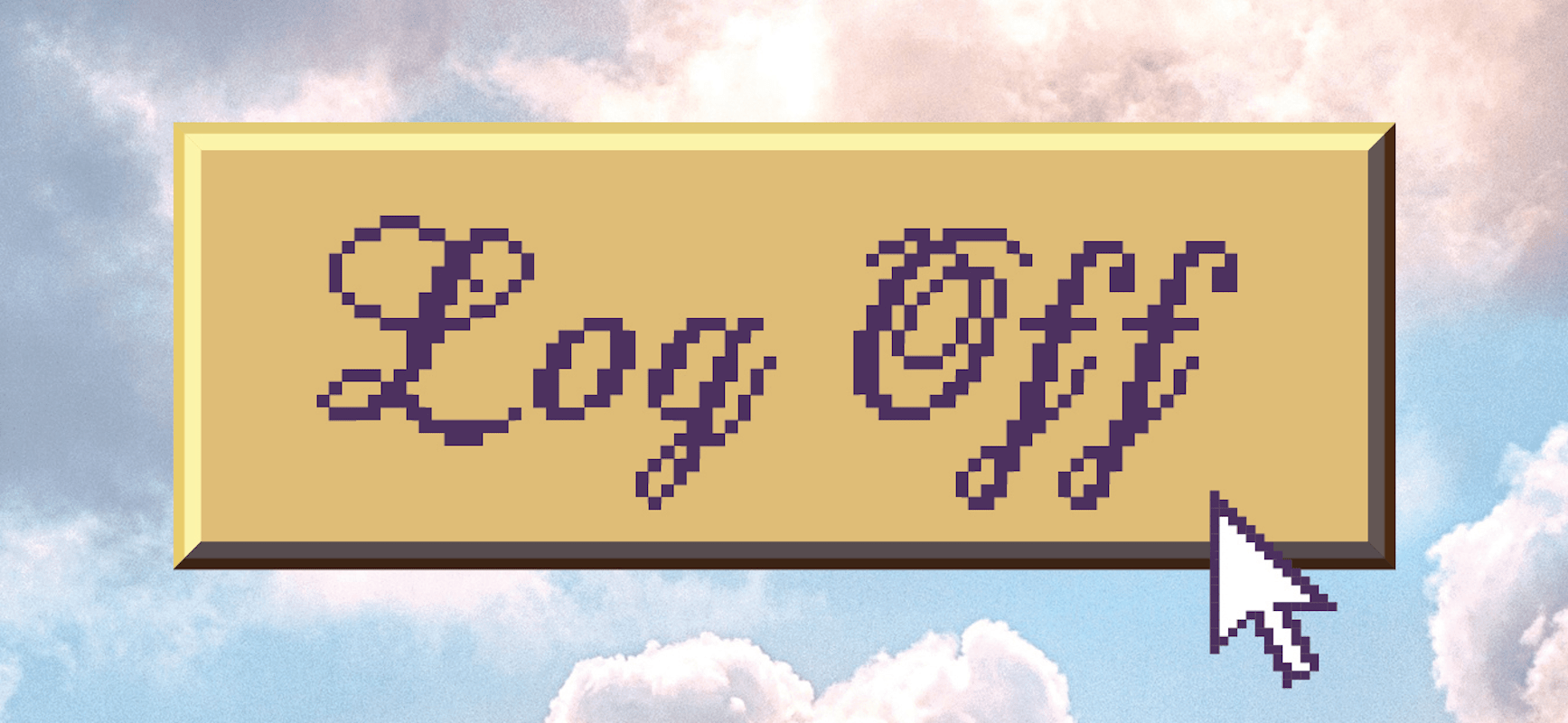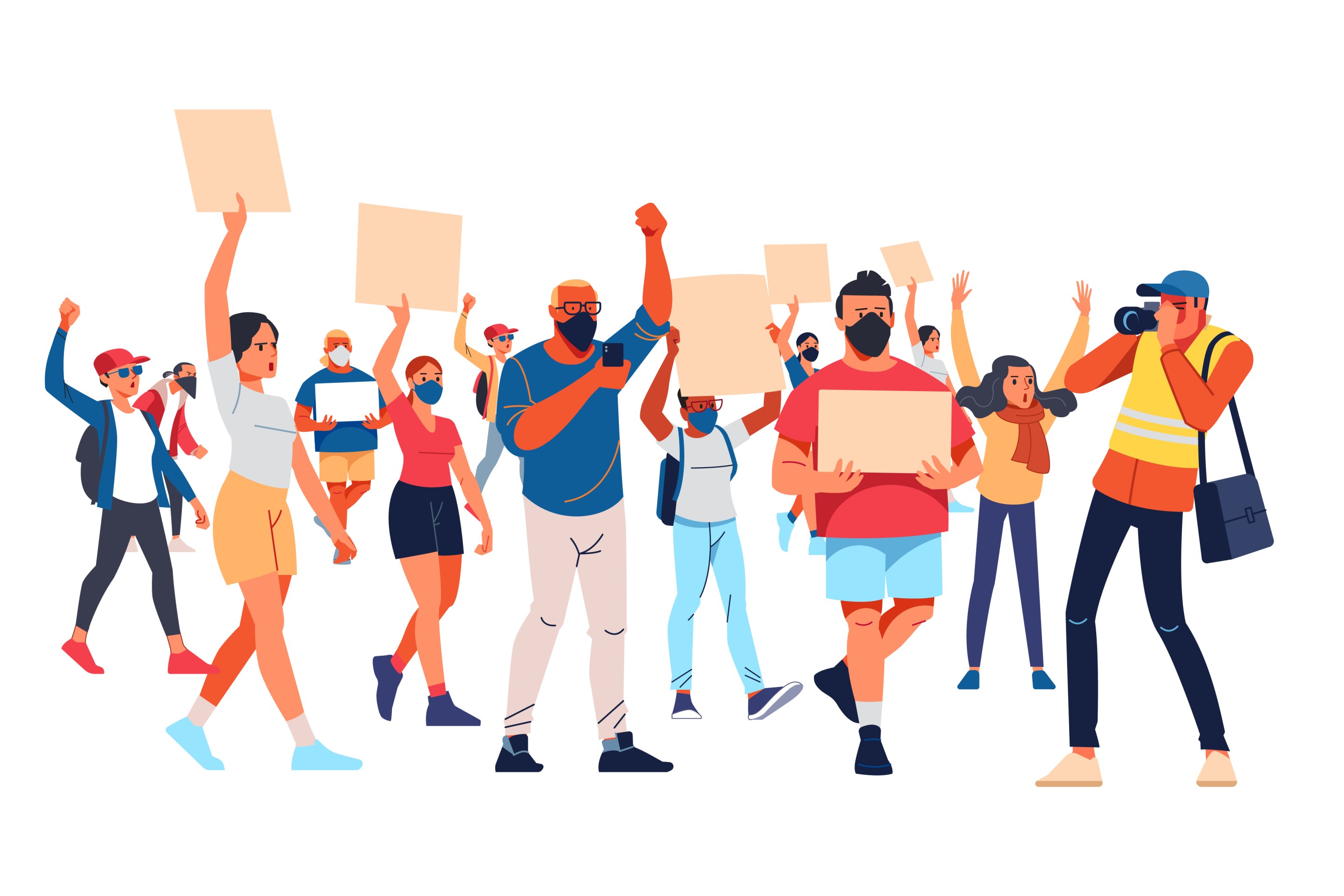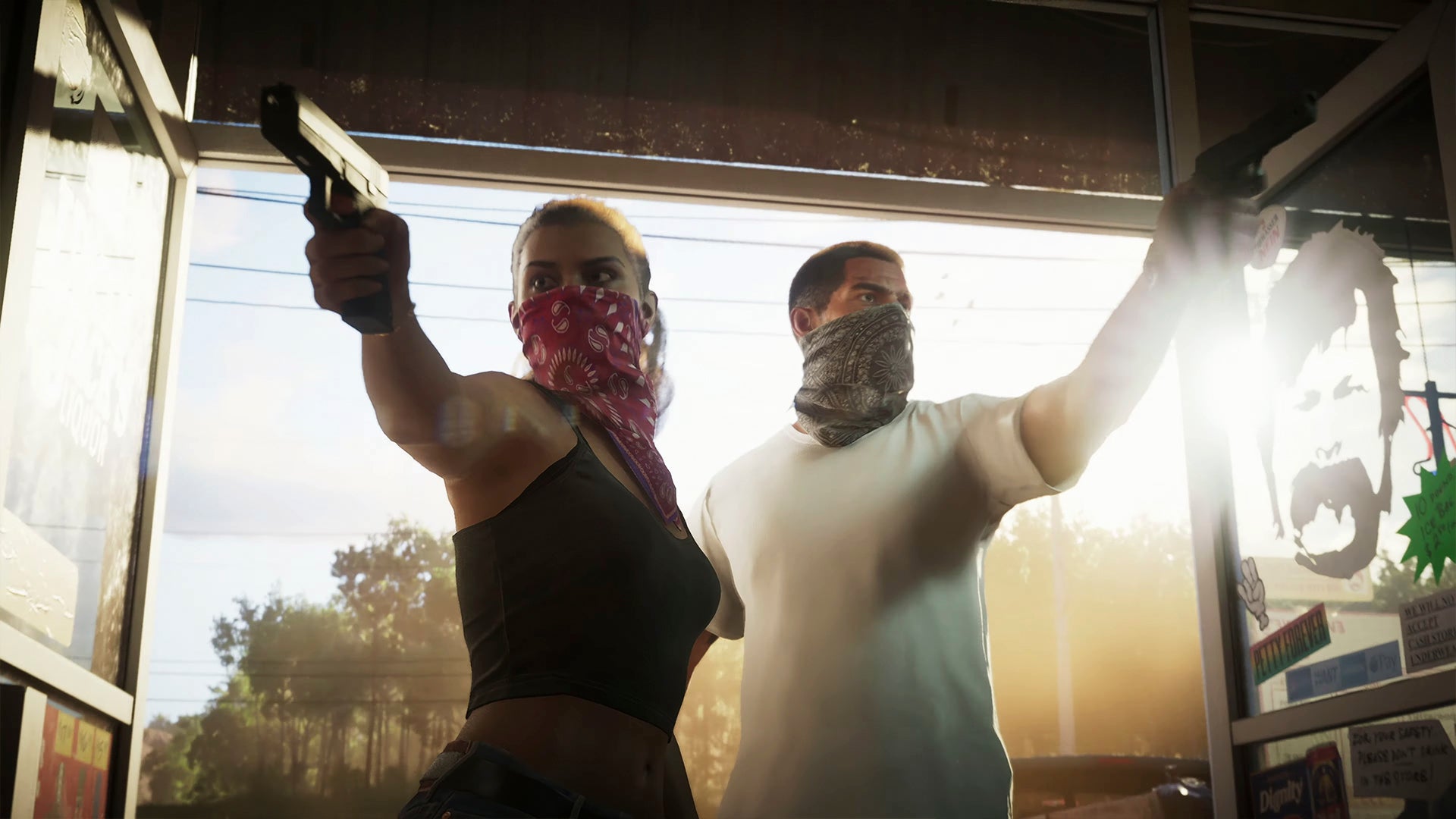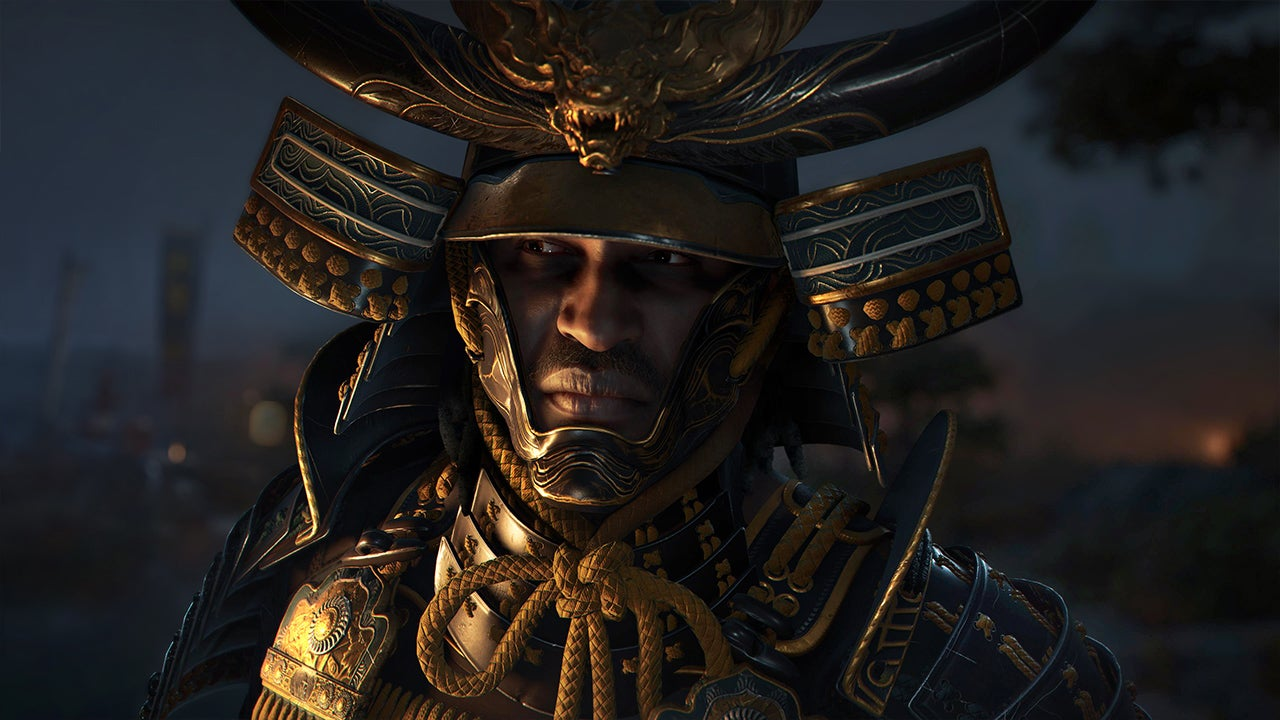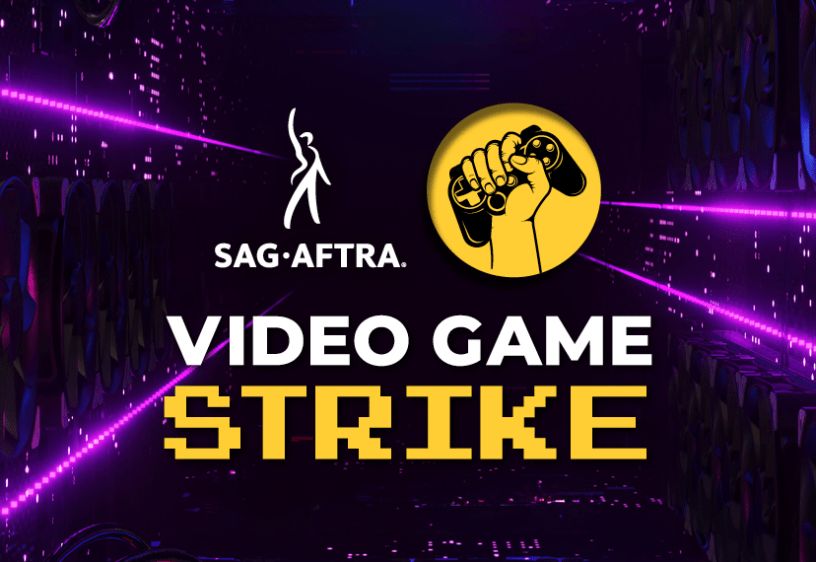As much as we all like to sing the praises of touching grass, if you're reading this, maybe you struggle with being Too Online. There's no denying the cursed allure of doomscrolling and shitposting, but in her upcoming book, writer Katherine Cross asks: what is posting really all about? What, if anything, is it good for?
Below is the introduction to Cross' book Log Off: Why Posting and Politics (Almost) Never Mix, coming out June 4 from LittlePuss Press. If you're in New York City, you can go to the launch event on Thursday, May 30, which, coincidentally, features Cross in conversation with recent Aftermath contributor Janus Rose.
“The end of the world is just a hypothesis.” That lyric from Penguindrum’s opening theme lived rent-free in my head as I lay sleeplessly staring at my Twitter feed throughout the bleak early nights of the COVID-19 pandemic. Yes, hopeless nerd that I am, I consoled myself with a soothing refrain from an anime song. The words were easy to say, far harder to believe in those long hours and longer days that made up the temporal sludge of 2020.
This was before a New Yorker cartoon popularized the word doomscrolling, so I didn’t quite have a name for this compulsive flipping through terrible news story after terrible news story that I seemed unable to refrain from. As the novel coronavirus spread out from the world’s major cities like red ink blots from a leaky pen, I became intimately acquainted with statistics about Italian, Iranian, and Chinese administrative regions. I couldn’t sleep, I could barely eat, I wept. But there was one pinprick of light that gave me some hope (perhaps equally hard to believe now, in 2024): public health experts on Twitter.
In the midst of this seeming-apocalypse, these scientists, doctors, scholars, and journalists were performing heroic feats of science communication, opening up a free, limitless-capacity graduate seminar in fields like epidemiology, virology, infectious disease, internal medicine, and more. Twitter’s capacity for allowing dorky obsessives to write fifty-tweet-long threads about Romanian stamps from the 1920s, or sixteenth-century Dutch cheese, or lost Doctor Who episodes, was being mobilized for the public good. People needed answers yesterday about this deadly new virus and what they could do to protect themselves. Like angels crowned with coruscating halos made of the Matrix itself, these experts moved among us, offering the best advice they could on how to interpret the barrage of new stats we were receiving (we became newly minted experts in what R-nought meant!), and how to practise pandemic-era hygiene.
Even better? Some of these experts were calling for radical reorganizations of society, for seizing the moment to finally realize long-held dreams that had been deferred by artificial political gridlock and transnational capitalism.
If ever there was a moment that tested the ability of social media to take the lead in changing the world, in organizing and mobilizing us to press for lasting, structural change, COVID was it. Had this pandemic happened in 1990, we’d have been stuck indoors sending letters and using MCI long-distance to stay connected to our loved ones and communities. But now? Now we had the world in our pockets — instant communication, HD video, crowdsourcing, and the thoughts of millions streaming through our consciousness at any given moment. Because COVID happened in 2020, we at least had the tools to get around the loss of in-person contact, and could redouble our efforts to change the world. Or so it seemed.
Then it all became Extremely Online.
By the time we reached our strange pandemic summer, fissures were already beginning to form, with some experts maintaining the need for the strictest possible interventions, like long-term lockdowns, while others began to advocate for a “harm reduction” approach that would leave parts of society open. Advice became contradictory—don’t mask, then mask up; parks should be open, no they should be closed—and their priors became more ideological, with libertarian-leaning scientists proving more sceptical of government intervention, as for instance with the so-called “Great Barrington Declaration”.
Meanwhile, the public was growing unhappy with the slow and furtive pace of scientific investigation. Is it safe to send my kids to school or not? Can I go to my grandmother’s funeral or not? People wanted The Truth, and science had to remind them that research could only provide partial answers at the best of times. And who in the name of the Goddess and Her Consort could’ve mistaken these for the best of times?
It wasn’t long before the experts began openly bickering. Among their fandoms, things were worse still: complex theories and analysis were reduced to slogans like “wear a fucking mask!” or “back to normal” or “vaxxed and relaxed.” Experts themselves became subject to virulent threats against their lives, livelihoods, and families, especially if they were women. Some medical experts I knew personally began retreating from Twitter or quitting it altogether due to harassment —not just from right-wing extremists, who by now were breathing massive new life into the anti-vax movement, but from their own colleagues who considered them either too lax or too strict in the advice they gave.
In every case, the once-broad horizon of building a better world on the ashes of the pandemic was narrowed to a blazing pinhole of individual, politically charged actions. We asked how to change the world and got told how to best protect ourselves and little else. Twitter’s structural individualism had come back to haunt us with a vengeance.
I will admit, my faith in social media had already been dwindling even before this. I’d watched its myriad flaws and abuses over the previous decade, from harassment campaigns like GamerGate to explosive privacy violations like the Cambridge Analytica scandal at Facebook. However, I still held out hope that some hashtag campaigns and co-ordinated communication could lead our societies to a better place, so long as these campaigns succeeded in getting us to do meaningful things in the physical world and not just on our phones or at our desks.
That turned out to be the sticking point. And in 2020 it was what finally snuffed my last remaining embers of faith in the ability of these platforms to help us achieve noble, collective aims. In a few months we went from “free, universal health care in America now!” to “wear a fucking mask!” and we couldn’t even achieve the latter.
Many, of course, advocated for both. But, in addition to the basic physics behind there only being so many hours in a day, social media was a far better conduit for one of these types of demands. Social shaming around individualistic behaviours—even those with a collective benefit, like masking up during COVID surges—is far easier to pull off with the platforms available to us than building the kind of political power necessary to achieve universal health care. Social media quickly reduces any sort of radical aspiration to a slogan, mere signalling, but it can be used very effectively to harangue an individual for their perceived poor choices.
It also allows you to endlessly vent your spleen about your grief, fears, and anxieties in order to soothe yourself—and who didn’t need that amidst the worst pandemic in over a century? In the process, the ferment for structural change dissipated and all that energy followed the path of least resistance—into the personal and the individualized.
All we succeeded in doing was terrifying the people who listened into a quiescent paralysis that presented them with yet more social media as the only solution to their problems, creating a small cadre of Twitter power users who pored over the details of medical journals they barely understood, steeped in confirmation bias as they sought to prove COVID was either a mislabelled common cold or the Andromeda strain that would leave us all with long COVID within a few years.
The pandemic left me convinced that social media presented us with only an illusion of collective action—we’re all online together sharing the same ideas, memes, and hashtags, how could that not be collective?—while instead isolating us in our own oubliettes of confirmatory terror. To the extent that Black Lives Matter has found any traction at all, it’s precisely to the degree that it sought to make an impact beyond social media, beyond merely “raising awareness.” #MeToo, meanwhile, is emerging as a dismal failure precisely because it became little more than a bitter harvest of our deepest traumas, ready to be liked, shared, and quoted—a strip mine of #content.
The whole point was to show our scars as women. We gave Jezebel and BuzzFeed some headlines, which fed right back into the social media ecosystem to start the life cycle anew. There were a handful of high-profile victories—who couldn’t cheer at the demise of Harvey Weinstein?—but what really changed? Perhaps a few token policies here and there, but nothing that actually protects us. COVID-posting too was quickly reduced to a similar parade of anecdotal traumas and the viral emotions that surrounded them.
The question I hope to try to answer with this book is, why? But also, I want to examine how we, especially among the political left and its constituent movements like feminism, came to believe that the revolution had to be live-tweeted. This myth of social media’s indispensability to our movements, not just as a tool but as the forum for change, is dangerous. If we internalize it too deeply, it actually demobilizes our movements, lulling us into mistaking quote-tweet wars and “clapbacks” for meaningful political action, seducing us into seeing nanoseconds of digital catharsis as an adequate substitute for change. It seduces us into mistaking the profitable content we generate for truly resistive speech—as well as tying our worth and our success, as people and activists, to the engagement metrics created by large tech corporations.
It’s old hat by now to say that social media is problematic or that tech is political. Technological historian Langdon Winner argued “certain technologies in themselves have political properties” in 1980, before I was born. But I want to modify this argument a little bit. I don’t want to tell you that screen time is bad for your kids or that social media is rotting your attention span; I don’t even want to focus too much on the social problems of online harassment and disinformation. Instead, I put to you the following: the idea that tech is political sometimes obscures the ways in which social media may be anti-political.
You may be sceptical of such a claim. Social media is chock-a-block with political content, hashtag activism, and disinformation that turns grandparents into fascists. How could it be anti-political?
Because it demobilizes and scatters the polity; it makes it much harder to come together, deliberate, and effect change in our communities. Worse, social media tricks us into thinking that that’s exactly what we’re doing. What results is a “public square” where real people can get hurt but nothing ever really changes. If social media has power to do good, it lies in its ability to act as a conduit between different domains of the physical world—in other words, how it can help you act in your community. Where it’s failed us most dramatically, however, is that it has become predominantly self-referential, keeping us stuck on platforms obsessing over things that only really matter there—a problem made worse when internet drama is dressed in the stolen valour of genuinely weighty political issues.
This all matters for a few reasons. First and foremost, one of the ugliest side effects of terminal COVID-posting that proliferated amongst the Extremely Online was a deepening mistrust of their fellow human being; every time they fell for outrage-bait about some wanker being a dick about not wearing a mask, their inevitable response was, “I don’t trust people anymore!” This is a neat fit for conservatives, whose entire movement is built on a notion of Original Sin, developed through two centuries of monarchism, fascism, nativism, and lesser varieties of know-nothingism, that treats strangers as essentially threats. But for anyone to the left of Mussolini, such contempt for your fellow human being, such unwillingness to reach out to one’s neighbour for fear they’ll be like That Bitch from Panera Bread I Saw on TikTok, is extraordinarily dangerous—and fatal to realizing the ideals we share, which are necessarily collective.
Secondly, speaking of TikTok, which may already be banned in parts of the US by the time this book reaches your hands/screen, I am finding myself watching history repeat itself. If you’re in your early twenties, you may be too young to remember former vice president Al Gore, among others, waxing poetic about how platforms like Twitter were going to change the world because of protests in Iran in the late aughts, or how the Colour Revolutions that proliferated across Eastern Europe—which continue to haunt the dreams of autocrats across Eurasia—showed that the internet had come of age, creating self-organizing communities that were invincible against the onslaught of sclerotic state actors and tyrants.
Twitter was often cast as indispensable to these movements. The Arab Spring, and all its attendant Twitter use, represented the culmination of this mythology, but protests in Greece against the EU’s immiseration of that country, the occupation of Istanbul’s Gezi Park, and Occupy Wall Street were other high-water marks. Twitter seemed to be the secret sauce.
Yet where are we now, exactly, in the wake of all that? Ukraine’s democratic project was given new life not by hashtags but by a war for its very survival. Elsewhere, the hard, slow, grinding work of politics continues, long after local protest movements ceased to appear on the “trending” pane of Twitter.
TikTok has taken over the role that Twitter once had as the supposed agent of change. What Twitter was for millennials like myself, TikTok is for GenZ: synonymous with the generation of youth who will single-handedly save us all from the coming car crash of apocalypses. Consider this a warning from a girl born in 1986 who’s watched this cycle play out after being flattered, scape-goated, and forgotten by her elders: TikTok will not change the world in the way you hope. It is a trap to pretend it will. The proposed US TikTok ban is both a catastrophic intrusion on free expression and totally idiotic, but some arguments being made against it—namely, the idea that the progressive movement can’t live without Tik-Tok—are steeped in a mythology of social media indispensability that has already turned the last decade into sociological wreckage. I hope to use this little book to challenge the myth that we need these platforms more than they need us. After all, Twitter was supposed to be a change agent, and look at it now.
Don’t blame Elon Musk, either. He’s merely Twitter’s all too Dantean punishment: an Extremely Online man who became so addicted to the platform that he spent US$44 billion buying it just to post ten-year-old memes without the risk of getting banned for irredeemable cringe—and so that he could roll back Twitter’s already threadbare policies protecting trans people. This Most Divorced Man in the Universe is, in many ways, the avatar of everything Twitter is: nasty, churlish, obsessive, abusive, prejudicial. But the site was already in steep decline when he bought it, already a shell of its former self that had become known as the Hellsite even to those who remained hopelessly in its thrall. If you think Twitter is for old people, then I hope to tell you some of the story of how it got old. But if you don’t, then I hope to show you why Twitter has aged poorly and why you should do as the title says.
Speaking of, let’s talk about the title.
When the idea for this book was batted around between me and my editors, one of the possible title concepts was “Delete Your Account.” But I stuck with my original idea of “Log Off” because, as one of the hopelessly online people I’ll be talking about in this book, I’m sensitive to the contextual differences between the two phrases. “Delete your account” means to fuck off into the sun, disintegrating your platform presence with it. “Log off” can mean this, but other times it’s a form of tough love. Or even regular ol’ love. It can be a way of telling someone they’re being Too Online and need to step away.
“Touch Grass” conveys the same sentiment and was another title idea. But that phrase is usually hurled as invective at someone who is obsessively fixated on internet drama, like Jesse Singal or half the columnists at the New York Times. “Log Off” can be a loving plea as well as invective. It can be a way of saying, delicately, that there is some grass in your area desperately in need of touching without actually shouting that at you. And that, in the end, is what the title means: You don’t need to give up social media. You just need to use it rather than letting it use you. Sometimes that means finding other tools for the jobs you need to do.
I do not intend to be an old woman shouting at clouds, but as both a scholar and a poster, I’ve learned the hard way that there are limits to what these platforms can do. That does not mean they have no utility whatsoever. There are some things that social media can do very well, and that it should be used for; there are positive possibilities for what the internet can look like if we get over the myth of social media’s indispensability. You can reduce the harm to yourself and others by stepping back a bit, using social media less, and using it for fewer purposes than you once did without completely deleting your web presence. Information technology is here to stay. We need to be involved and engaged with it to shape it for the betterment of humanity. Primitivist fantasies merely cater to the gaggle of libertarian “disruptors” who already wield far too much power in Silicon Valley.
But the worst people in the Valley also thrive on all the demobilizing disengagement that their platforms have slowly led us towards. They have alchemized activism into toxic Twitter beefs and seduced us into thinking that we’re one viral campaign away from solving some massive socio-structural problem, which makes it all the easier to devote our energies to pursuing these digital white whales in lieu of more tangible goals in our lives and communities. The self-soothing they offer, free at the point of delivery, actually comes at a great cost to our ability to see ourselves as real political actors—a cost I see every day when I see someone (often people who should know better) doomposting about how there’s no hope for humanity.
We’re not condemned to this. You probably sense it in your own life every time you look up from your phone or step away from the computer: the sense that the world you see through the scroll of Twitter or TikTok or Instagram isn’t the world you see when you step away. Sometimes for the worse, but often for the better. On Twitter, it’s Apocalypse Forever; in your life, the apocalypse competes for purchase with all that is good and wonderful in your life. Staying in touch with that reality is what’s going to prepare you for challenges we face — and those that await us.
One of the things I really can’t forgive social media for is how deeply it has corroded our sense of sincerity, making it uncool to care. Yes, it’s allowed us to treat everything in our lives like an episode of Mystery Science Theater 3000, because it often deserves it. My graduate school cohort has a Slack where we backchannel and make memes about the vicissitudes of grad student life because it’s fun, funny, and a release valve. But then I think of my work as a teacher, which reminds me that “citizenship” means something far more than describing what passport you hold. It means that you’re part of a community, with duties and obligations towards your neighbours, as well as inherently possessed of rights and dignity for yourself. One of the most grievous sins of anti-immigration discourse in Western countries is how deeply it buries this understanding. Over the next few chapters, I hope to help you see the value in that dignity—and how social media is so often beneath yours.
Social media acts as a self-organizing collective that foments citizenship far less often than it denies it to you—making you something less than what you are, spackling over the cracks with a lot of (admittedly sometimes very good) humour. But you don’t need to make that trade-off. This, in the end, is something I pray is a hopeful message: by logging off more than you do, you can get the jokes and benefits, and you can get the rewards of citizenship.
Logging off is woefully insufficient, but it is an essential first step.
That said, I understand how much I’m asking here, even if I do mean “log off” in a very limited, time-bounded way. There is an essentially Roach Motel quality to these platforms, what I would describe as open social media; it’s easy to enter and almost impossible to leave. They’re open when you come in, but when you want to go, it turns out they’re a walled garden instead. Indeed, what these two apparently opposite paradigms turn out to be, it seems to me (and this is a metaphor I’ll return to), is a Möbius strip: you carry on far enough along one side of the opposition and suddenly you find yourself on the other.
What makes these platforms “open” is a combination of their ease of access and their ubiquity. Posting is public by default; locking your account or making it less public necessarily cuts you off from many of the platform’s greatest benefits, and you’re generally speaking to an entire crowd — the entire platform’s user base, potentially, rather than merely a curated audience of devoted followers. But the longer you stay, the more you need to stay; your friends are there, your career may rely on the platform now. Moving your followers, your networks, your community becomes hard or impossible. The garden suddenly has walls.
It’s easy to mummify oneself in lofty justifications for the fulfilment of these basic—but very much real, valid—needs. Politics is the first and best justification for sticking around: you’re not just clinging to a platform you’ve become dependent on, you’re making yourself “visible,” making your “voice heard,” holding malefactors “accountable.” As we’ll see, this quickly leads to dark places, to a species of online “activism” utterly divorced from any kind of mind-independent reality.
The reason for that is that platforms like Twitter, far from being unique change agents, can only effectively solve problems that they themselves create—and then only those problems that exist primarily on the platform. Call it the unspoken iron law of social media: the more you look at recent history, the more you realize social media has not meaningfully addressed social problems. To the degree it creates them, it does so because the problems in question are uniquely well-suited to the way social media points individuals at other individuals. Twitter can facilitate hate speech and hate crimes; it cannot get us to build, say, a community centre. For that, we need real politics: pavement-pounding, letter-writing, town-halling, street-protesting, ballot-casting politics.
But even the splashy, attention-getting street protests of the last decade, not unreasonably attributed to social media’s unique crowd-sourcing abilities, are not sufficient, and their decade of failures makes that abundantly clear—with one Spring or Colour Revolution or Occupy movement after another yielding no meaningful change or, worse, far-right governments and dictatorships. Social media has made it all too easy for us to focus on the wrong things, on trivial, private, cathartic non-victories at the expense of things that might last. And it is terrible at organizing us in the kind of leadership-driven, hierarchical fashion that would be ideal for channelling masses of people into collective, unitary projects. It is, however, good for cleaning up a few of its own messes.
As we’ll see, we haven’t been the gainers from that particular trade. Instead, social media has seen us become worse at and more contemptuous of politics, in exchange for the feel-good purism of online humour and a catharsis-driven sense of our own deeply private virtue. These sentiments are many things, but they are not the cornerstones of a community worth living in.
